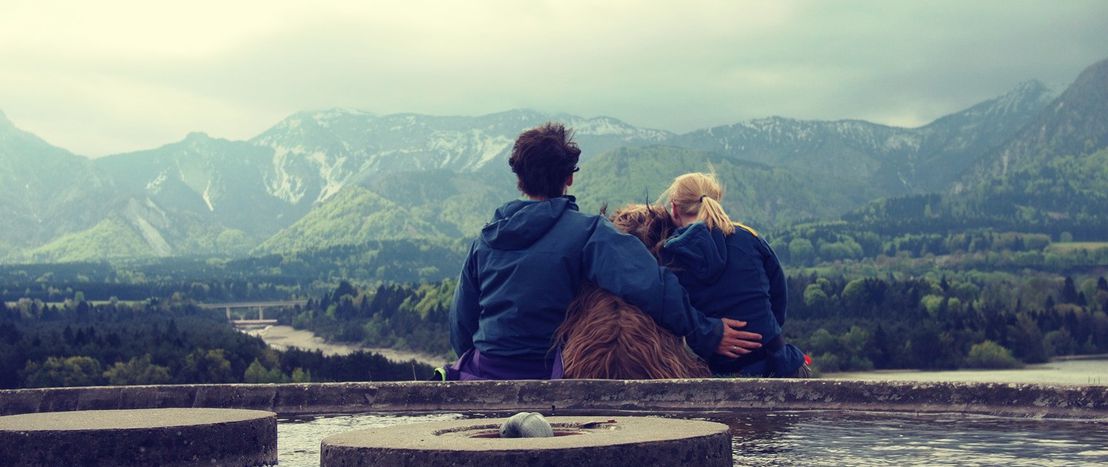
Austria: Will a right-wing populist be President?
Published on
Translation by:
euro topicsThe FPÖ candidate Norbert Hofer won over 36 percent of the vote in the first round of Austria's presidential elections. This is the best result the right-wing party has ever achieved on the federal level. Commentators see the election above all as a vote against the established parties.
The end of an era - Die Presse, Austria
Both the People's Party and the Social Democrats lost out in the first round of the presidential election meaning that Freedom Party candidate Höfer will face Alexander Van der Bellen, an independent candidate endorsed by the Greens, in the run-off vote. Austria's main parties are facing the end of their long time in power, Die Presse comments: "When the traditional parties don't understand that supporters of the right-wing populists on the one hand and young, eco-friendly voters on the other are demanding - and pushing through - sweeping changes of style and policy, it means that we are witnessing the last months of an era. What comes next is anyone's guess, but an interregnum is never a laughing matter. Possible are developments such as those in Hungary and Poland, as well as new populist trends rising from the ashes of the traditional parties. Or there will be a series of elections like in Italy some years ago. Or experiments such as those in Denmark and other creative democracies. But political life as we knew it is now a thing of the past. We just have to face that fact." (25/04/2016)
Ruling parties with ivory-tower candidates - Magyar Nemzet, Hungary
The election was a devastating defeat for the ruling SPÖ und ÖVP parties not least because of their choice of candidates, Péter Techet, a columnist for Magyar Nemzet comments with irony: "The two ruling parties ran for election with extremely weak candidates: the trade union representative for public employees in subsidised housing, also referred to as 'senior caretaker' Rudolf Hundstorfer, and the president of the pensioners' association Andreas Khol. Both candidates are caricatures of the pitiful state of their parties. Hundstorfer has been active in the musty old trade union movement since the age of fifteen. Khol is the representative of a Catholic community so out of touch with reality that he was surprised that his pension of 8,000 euros wasn't the average for Austria." (24/04/2016)
Don't copy the right-wing populists - Neue Zürcher Zeitung, Switzerland
After their disastrous results in the presidential election Austria's two ruling parties should try their hand with objective and practicable politics instead of populism, the liberal Neue Zürcher Zeitung writes: "Election day has shown that it would be wrong to adopt watered-down versions of the FPÖ's formulas. The refugee crisis may have been the issue that most helped the right-wing populists in this election, but the coalition's taking a hard line in this area didn't help its candidates. The Austrians' anger didn't just manifest itself in support for the FPÖ; the two moderate candidates Alexander Van der Bellen and Irmgard Griss secured 40 percent of the vote between them. Both ran for election with rather harsh and decidedly non-populist platforms and presented nuanced arguments. This testifies to the maturity of an electorate that wants change and won't succumb to the charms of pseudo-solutions. The government should see this fiasco as a mandate to pursue a more honest and solution-oriented policy." (25/04/2016)
A defeat for Europe - La Stampa, Italy
The results in Austria only confirm the anti-European tendencies that are taking hold in all EU member states, laments La Stampa: "In Austria the spectre that has been haunting Europe for years is taking concrete shape: the victory of anti-systemic forces that stretches from France to Germany and Italy all the way to Britain. … This victory is less a sign that a logical alternative for what Europe has created is emerging and more the symbol of a movement that embodies the diminishing support for that ideal. … An ideal that has been the driving force behind our continent's trajectory since the end of the Second World War. The traditional parties have failed to counter the unprecedented refugee crisis with either a humanitarian social policy or a political narrative that conformed with the EU's values and at the same time provided an answer to voters' unease and legitimate fears." (25/04/2016)
---
30 Countries, 300 Media Outlets, 1 Press Review. The euro|topics press review presents the issues affecting Europe and reflects the continent's diverse opinions, ideas and moods.
Translated from Österreich: Rechtspopulist for president?



